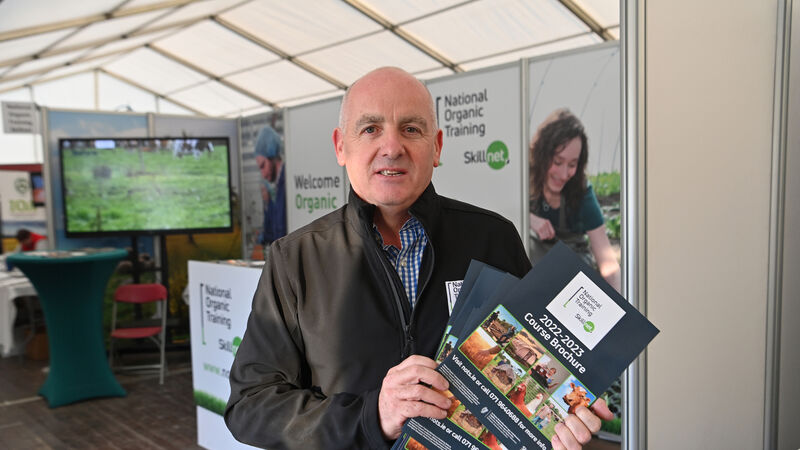More farmers making the switch to organic

Seán McGloin, manager of the National Organic Training Skillnet in the Organic Village at the National Ploughing Championships, Ratheniska, Co Laois. Picture: Dan Linehan
Try from €1.50 / week
SUBSCRIBEAs farmer interest and consumer demand grows, the National Organic Training Skillnet (NOTS) has said it is currently working on developing an organic equivalent of the green cert.
NOTS, through which the course will be delivered, is hoping to have it ready for next September, according to manager Sean McGloin.
Already a subscriber? Sign in
You have reached your article limit.
Annual €130 €80
Best value
Monthly €12€6 / month
Introductory offers for new customers. Annual billed once for first year. Renews at €130. Monthly initial discount (first 3 months) billed monthly, then €12 a month. Ts&Cs apply.
Newsletter
Keep up-to-date with all the latest developments in Farming with our weekly newsletter.
Newsletter
Keep up-to-date with all the latest developments in Farming with our weekly newsletter.
Newsletter
Sign up to the best reads of the week from irishexaminer.com selected just for you.
Newsletter
Keep up with stories of the day with our lunchtime news wrap and important breaking news alerts.
Saturday, February 7, 2026 - 11:00 PM
Saturday, February 7, 2026 - 9:00 PM
Saturday, February 7, 2026 - 12:00 PM
© Examiner Echo Group Limited